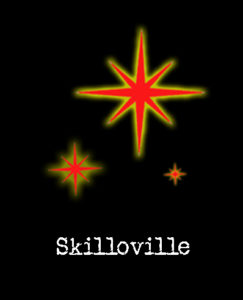Notes – “Speaking of Courage” and “Notes”:
As the author points out later in the writing, the lake Bowker circles in his Chevy is juxtaposed with the field in Vietnam where the platoon was deeply engulfed in human waste and mortar fire. The author illustrates the displacement that may be felt by veterans after returning from war and service as compounding the displacement of being overseas and at war.
One of the greatest quotes from the entire writing comes in the form of a voice over a drive-in diner intercom: “‘Well, hey,’ the intercom said, ‘I’m sure as fuck not going anywhere. Screwed to a post, for God sake. Go ahead, try me.’” (46)
The words are meant as encouragement for Bowker to speak, to relay, to confess his mind. “Screwed to a post,” like being crucified, the occupation, the job, the detail, the post being the crucifix, the crucifixion, “for God sake,” blasphemy, yet duty performed in the name of God, for the sake of God and mankind, crucified, in the name of the father, to serve the father, and mankind, one supersized value-meal at a time. Thank you, drive thru.
Quotes – “Speaking of Courage”:
“Norman Bowker shrugged. ‘No problem,’ he murmured.
Clockwise, as if in orbit, he took the Chevy on another seven-mile turn around the lake.” (133)
“What he should do, he thought, is stop at Sally’s house and impress her with this new time-telling trick of his.” (134)
“. . . he’d almost won the Silver Star for valor.” (134)
“. . . many brave men did not win medals for their bravery, and that others won medals for doing nothing.” (135)
“. . . Norman Bowker might then have listed the seven medals he did win: the Combat Infantryman’s Badge, the Air Medal, the Army Commendation Medal, the Good Conduct Medal, the Vietnam Campaign Medal, the Bronze Star, and the Purple Heart, though it wasn’t much of a wound and did not leave a scar and did not hurt and never had. He would’ve explained to his father that none of these decorations was for uncommon valor. They were for common valor.” . . . . “The ribbons looked good on the uniform in his closet . . .” (135)
“He looked out across the lake and imagined the feel of his tongue against the truth.” (136)
“Put on a suit and tie and stand up in front of the Kiwanis club and tell the fuckers about all the wonderful shit he knew.” (137-8)
“Number ten, they said. Evil ground. Not a good spot for good GIs.” (138)
“. . . we were camped in a goddamn shit field.” (139)
“And a pity about his father, who had his own war and who now preferred silence.” (141)
“Some of the men began shooting up flares. Red and green and silver flares, all colors, and the rain came down in Technicolor.
“The field was boiling. The shells made deep slushy craters, opening up all those years of waste, centuries worth, and the smell came bubbling out of the earth.” (142)
“Pinned to her shirt was a badge that said EAT MAMA BURGERS.” (145)
“‘Punch the button and place your order. All I do is carry the dumb trays.’” (145)
“‘Roger-dodger. Repeat: one Mama, one fries, one small beer. Fire for effect. Stand by.’” (145)
“‘Well, hey,’ the intercom said, ‘I’m sure as fuck not going anywhere. Screwed to a post, for God sake. Go ahead, try me.’” (146)
“Norman Bowker remembered how he had taken hold of Kiowa’s boot and pulled hard, but how the smell was simply too much, and how he’d backed off and in that way had lost the Silver Star.” (147)
Quotes – “Notes”:
“In the spring of 1975, near the time of Saigon’s final collapse, I received a long, disjointed letter in which Bowker described the problem of finding a meaningful use for his life after the war.” (149)
“‘The thing is,’ he wrote, ‘there’s no place to go. Not just in this lousy little town. In general. My life, I mean. It’s almost like I got killed over in Nam . . .” (150)
“One thing I hate – really hate – is all those whiner-vets. Guys sniveling about how they didn’t get any parades.” (150)
“What you should do, Tim, is write a story about a guy who feels like he got zapped over in that shithole.” (151)
“In this original version, which I still conceived as part of the novel, I had been forced to omit the shit field and the rain and the death of Kiowa, replacing this material with events that better fit the book’s narrative. As a consequence I’d lost the natural counterpoint between the lake and the field. A metaphoric unity was broken.” (153)
“Going After Cacciato was a war story; ‘Speaking of Courage’ was a postwar story. Two different time periods, two different sets of issues.” (153)
“In the interests of truth, however, I want to make it clear that Norman Bowker was in no way responsible for what happened to Kiowa. Norman did not experience a failure of nerve that night. He did not freeze up or lose the Silver Star for valor. That part of the story is my own.” (154)

